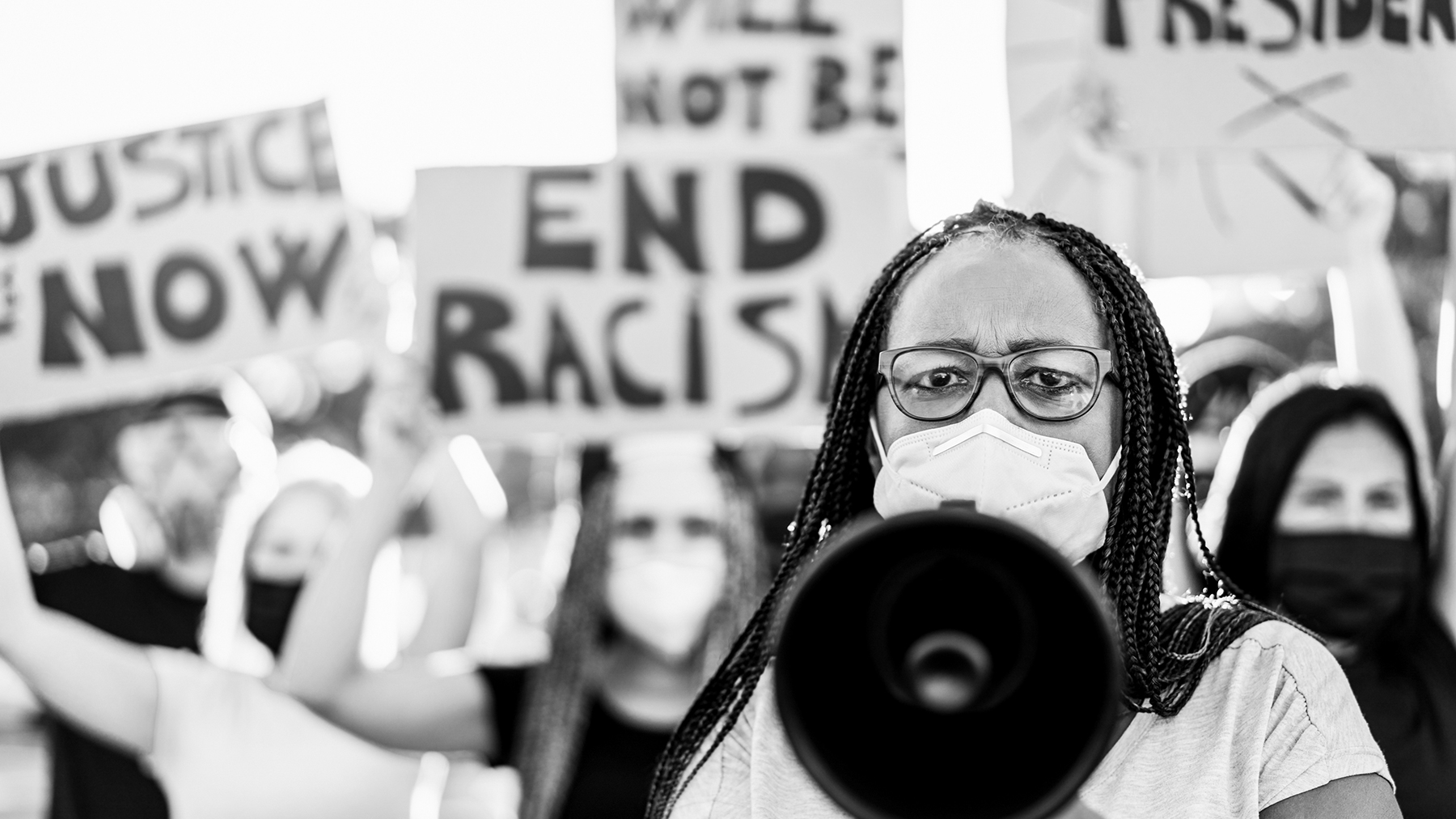Southern Poverty Law Center President and CEO Margaret Huang will speak about the fight for racial justice in the United States during a conference by the AFL-CIO Union Lawyers Alliance on Sunday.
The speech to the group of lawyers who represent labor unions comes shortly after a former Minneapolis police officer was found guilty in the murder of George Floyd. Despite the verdict, the historic demonstrations for racial justice that Floyd’s death sparked in 2020 powerfully symbolized the work ahead for racial justice organizations.
If that wasn’t enough, this year has seen an insurrection at the U.S. Capitol sparked by conspiracy theories about the presidential election, which were stoked by extremists and elected officials alike. Those election lies are rippling across the nation in the form of voter suppression legislation under consideration in several state legislatures.
What’s more, the nation has seen vicious hate crimes against the Asian American Pacific Islander community amid a pandemic that has also thrown into stark relief longstanding economic injustice in this country.
In other words, there’s no shortage of issues for the SPLC and other social justice groups to address. Ahead of the speech, Huang, who joined the SPLC a year ago, reflected on how the organization, now in its 50th year, will meet such challenges. That’s the topic she’ll discuss at the virtual conference, “Unions and the Struggle for Racial Justice.”
“Our work has always been to track and monitor the groups that promote and espouse hateful ideology,” Huang said. “And we’re going to continue to do that. We will also increasingly, as we go forward, be doing more to support government efforts to prevent and prosecute those who are embracing hateful ideology and who are taking actions that hurt other.”
The SPLC identified 838 hate groups operating across the United States in 2020, a decrease from the 940 documented in 2019 and the record-high 1,020 in 2018. The number of hate groups in the SPLC census, conducted each year since 1990, is a barometer of extremism in the country, but not the only one. The drop from the previous year does not signal a decline in extremist activity or the threat of domestic terrorism.
As the SPLC has shared in its annual Year In Hate and Extremism report, the proliferation of online platforms that cater to extremists allows people to engage with potentially violent movements like QAnon and Boogaloo without being card-carrying members of a group. This phenomenon has blurred the boundaries of hate groups and far-right ideologies, helping coalesce a broader but looser movement of far-right extremists.
“Our litigation team and our policy team are going to be working with local, state and federal government officials to adopt policies and laws that will hold accountable far-right extremists when they break the law,” she said.
The effort builds upon the SPLC’s signature work of holding hate groups accountable for their violence by suing these organizations in civil court. The innovative work won multimillion-dollar verdicts on behalf of the victims – crushing verdicts that shuttered some of the nation’s most notorious hate groups.
Promoting prevention
However, the SPLC has recognized that an important key to combatting hate is prevention. That means stopping hateful ideology from taking hold by helping young people and the wider community understand the threat of extremist ideology.
That’s the goal of the SPLC’s Learning for Justice program, Huang said. It provides free resources to caregivers and educators who work with children from kindergarten through high school. They use the materials to supplement academic curricula and to create civil and inclusive communities where children and youth are respected, valued and welcome participants.
Also, the SPLC’s Civil Rights Memorial Center (CRMC) in Montgomery, Alabama, helps educate people about the civil rights movement of the past and present. Even after the pandemic closed the CRMC to guests, a virtual tour was created to continue its mission.
After the COVID-19 pandemic relegated people to their homes, where children may be spending more time online, putting them at risk for extremist recruitment, the SPLC and American University’s Polarization and Extremism Research and Innovation Lab provided a guide to help caregivers identify the warning signs of online radicalization in order to counter the threat. The initiative also provided webinars about countering online radicalization.
The SPLC recognizes that achieving its mission of being “a catalyst for racial justice in the South and beyond” means ensuring that the organization is aligned internally and externally with the goal of racial justice, Huang said. It’s a critical responsibility for any civil rights organization that hopes to be effective.
At the SPLC, the commitment to racial justice has led to the creation of the Justice, Equity, Diversity and Inclusion (JEDI) Initiative, where representatives from the SPLC’s offices, teams and legal practice groups implement projects and offer guidance to staff about fostering an anti-racist workplace culture.
“JEDI principles should inform all aspects of our work – what issues we work on, the ways we choose to make change and how we work together,” Huang said. “It’s not only about improving diversity in hiring or listening respectfully to other perspectives, but also about fundamentally shifting our culture to be more inclusive and equitable.”
The JEDI initiative has already demonstrated its value in multiple ways.
“It’s a source of ideas and suggestions for how to improve our workplace,” she said. “It’s a safe space where staff can discuss and explore issues that can be difficult to address. And it’s an implementation team that helps us to actualize our vision in ways that build understanding and commitment across the organization.”
As the events over the past year have demonstrated, the SPLC and other civil rights organizations face formidable challenges, but it’s incumbent upon them to meet and overcome them.
“Racial equity is at the heart of the SPLC’s mission,” Huang said. “It’s why we exist.”
Photo by iStock



